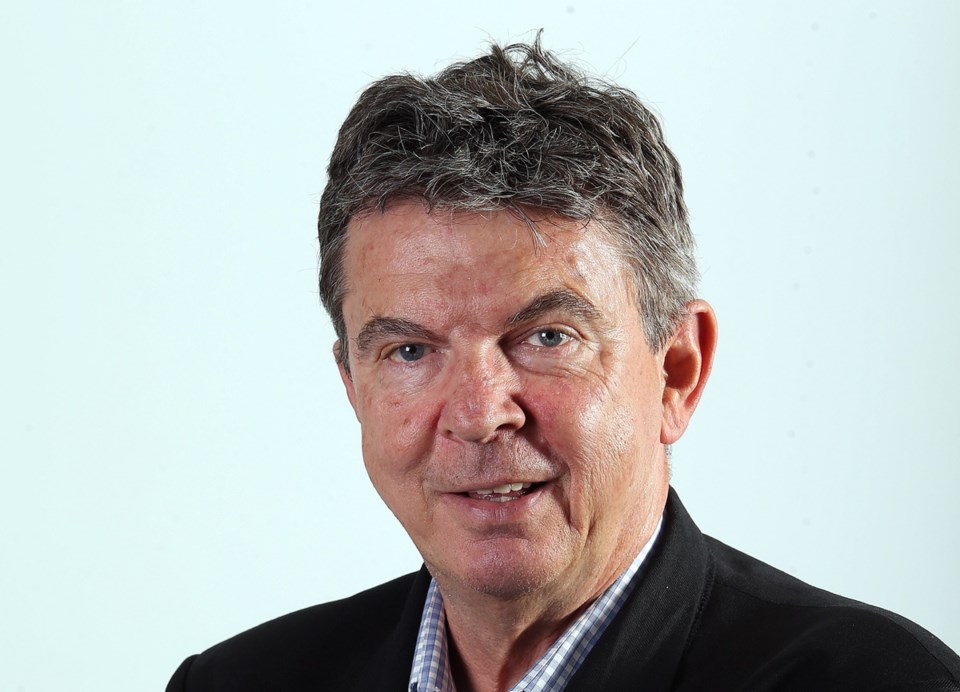 The special adviser who blew up an Interior school board this week, prompting the firing of all nine trustees, included an audacious idea in her grisly indictment of the district. She mused about taking steps to ensure that people who get elected have some vague idea of what they’re doing.
The special adviser who blew up an Interior school board this week, prompting the firing of all nine trustees, included an audacious idea in her grisly indictment of the district. She mused about taking steps to ensure that people who get elected have some vague idea of what they’re doing.
Was it just me, or was that a ripple of anxiety that spread through elected officialdom as the implications of the idea started to dawn?
Being charming, or ambitious, or in the right place at the right time might soon not be good enough. You’ll also need to have some passing familiarity with financial management.
Liz Watson, a noted governance consultant, was turned loose in Salmon Arm after a North Okanagan-Shuswap school board issue gradually went from headache to irritant to full-fledged nightmare. It was the trustees themselves who retained Watson. It turned out to be one of their last moves. She brought the horror story to an abrupt end by submitting a verdict to Education Minister Mike Bernier. She found the board guilty of incompetence in the first degree. He fired them all on Wednesday.
It’s not every day you see a school board subject to the same kind of report cards they issue their students. And Watson is a tough marker. She not only failed the whole bunch of them, she called them almost financially illiterate.
To summarize, she found the board didn’t have sufficient skills to provide oversight and didn’t have any strategy or vision. There was “a complete absence of financial expertise, and a very minimal level of financial literacy.”
And it wasn’t like they were struggling rookies. Some were long-term members with 20 years or more of experience.
Total lack of trust among all stakeholders, including within the board itself, and a lack of perceived transparency rounded out the list of charges.
“The community has lost confidence in this board,” Watson said.
Geoff Johnson noted the findings on this page Friday. They’re still sinking in for trustees and other elected officials. The most striking one is a general observation about how people, qualified or not, wind up with so much authority. The only prerequisite is to be eligible for election, and win the vote.
Candidates get a nomination package and a briefing from the district. Then there’s a orientation session and training offered by the B.C. School Trustees Association. After that, they’re on their own.
People who run do so for all the right reasons, but Watson said “there is no mechanism to ensure that those elected … collectively possess all the necessary skills and experiences.”
That’s as true of provincial politicians as it is of school trustees, as the trustees association was quick to note. Lots of legislative sessions have turned into the “gong shows” that Watson noted school board meetings had become. And there’s a long, colourful list of cabinet ministers whose qualifications left lots of people wondering.
The virtue of democracy is that almost anyone is free to run for office. The big drawback is that almost anyone is free to run for office.
People told Watson the trustees are “just regular folks.” But they were nominally in charge of a $70-million budget that needed a sophisticated grasp of a host of issues. “The current electoral model neither guarantees nor even addresses the requirement that each school board has the collective skills and experience necessary to provide sound governance,” said Watson.
She suggested all B.C. trustees should fill out a “skills matrix” after winning office, to see where the boards stand. Trustees should take mandatory orientation that stresses financial literacy and be regularly evaluated. In keeping with the back-to-school theme, she even recommended attendance records be kept at North Okanagan-Shuswap meetings.
Bernier sounded noncommittal on the ideas, but they’re worth a look. All the students get grades. Why shouldn’t trustees?
Watson made the remarkable observation that in the 177-page Education Act, there is no concise outline of what exactly a school trustee is supposed to do. So the expectations are not clear and trustees operate under their own understanding of their roles.
Being “just regular folks” is great for representative democracy, but only up to a point.


